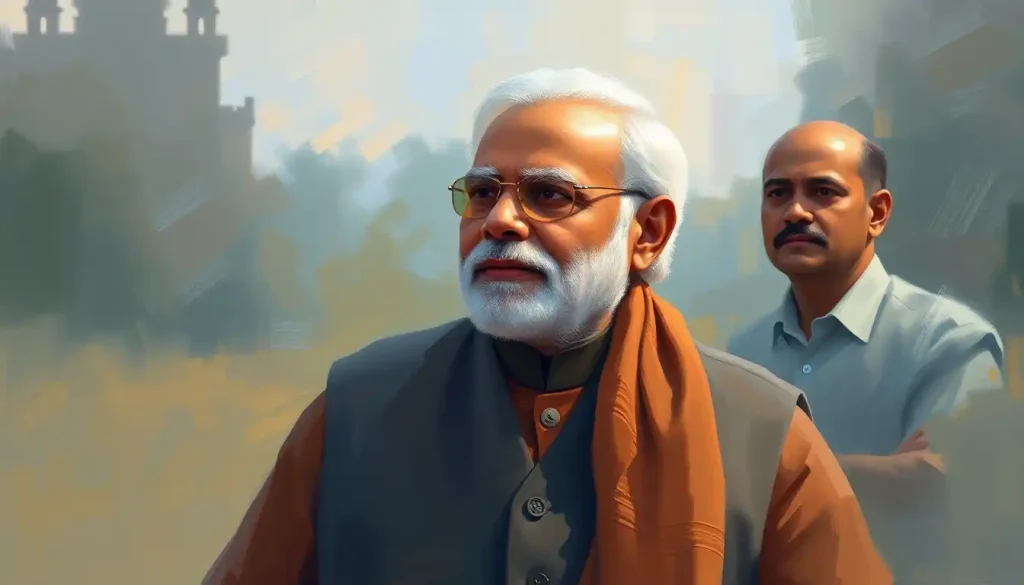Every fighter’s career clock ticks differently, yet the brutal nature of mixed martial arts forces all champions and contenders to face the same daunting question: when is the right time to walk away from the octagon?
In the world of professional mixed martial arts (MMA), particularly in the Ultimate Fighting Championship (UFC), retirement is a complex and often emotional decision. It’s a topic that looms large in the minds of fighters, fans, and industry insiders alike. Understanding the trends and factors that influence retirement in the UFC is crucial for appreciating the sport’s evolution and the challenges faced by its athletes.
The concept of retirement in combat sports is unique. Unlike many other professional athletes, MMA fighters face not only the physical toll of their sport but also the very real risk of serious injury or long-term health consequences with each bout. This reality adds a layer of urgency to retirement decisions that athletes in less physically demanding sports may not experience to the same degree.
Crunching the Numbers: Average UFC Retirement Age
When it comes to pinpointing the average retirement age for UFC fighters, the data paints a nuanced picture. While individual cases vary widely, statistical analyses have shed light on some general trends. Recent studies suggest that the median retirement age for UFC fighters hovers around 34 years old. However, this number doesn’t tell the whole story.
Interestingly, retirement ages can differ significantly across weight classes. Lighter weight divisions, such as flyweight and bantamweight, tend to see fighters retire slightly earlier, often in their early 30s. This could be attributed to the faster pace and higher volume of strikes exchanged in these divisions. In contrast, heavyweights and light heavyweights often extend their careers into their late 30s or even early 40s.
Over the past two decades, there’s been a subtle shift in retirement trends. The professionalization of MMA and advancements in training and recovery techniques have allowed some fighters to extend their careers. However, increased awareness of long-term health risks, particularly concerning brain injuries, has also led some athletes to consider earlier retirement.
It’s worth noting that retirement ages in MMA differ from those in other sports. For instance, gymnasts typically retire much earlier, often in their early 20s, due to the intense physical demands of their sport. On the other hand, some combat sports athletes, like boxers, have been known to compete well into their 40s, as exemplified by Floyd Mayweather’s late-career bouts.
The Multifaceted Decision: Factors Influencing UFC Retirement Age
The decision to hang up the gloves is rarely straightforward. Multiple factors come into play, each weighing differently for individual fighters. Let’s delve into some of the most significant influences on retirement timing in the UFC.
First and foremost is the physical toll of MMA on the body. Years of intense training, weight cutting, and in-cage battles accumulate, leading to wear and tear that becomes increasingly difficult to overcome. Chronic injuries, slower recovery times, and decreased physical performance all contribute to a fighter’s decision to retire.
Financial considerations also play a crucial role. Unlike team sports with guaranteed contracts, MMA fighters’ earnings are largely dependent on their ability to compete and win. As careers progress, some fighters may find themselves in a position where the financial rewards no longer justify the physical risks. Conversely, others might feel compelled to continue fighting due to financial necessity.
Performance decline and loss of competitive edge are often catalysts for retirement. In a sport where split-second reactions and peak physical condition are paramount, even slight decreases in speed, power, or endurance can have significant consequences. Many fighters choose to retire when they feel they can no longer compete at the highest level, preserving their legacy and health.
Opportunities outside the octagon can also influence retirement decisions. Some fighters transition into coaching, commentary, or other roles within the MMA industry. Others pursue entirely different career paths, leveraging their fame and experiences in the UFC. The prospect of a stable, less physically demanding career can be appealing after years of grueling competition.
Tales from the Octagon: Notable UFC Retirements
Examining specific cases of UFC retirements provides valuable insights into the diverse paths fighters take at the end of their careers. Let’s look at a few notable examples that illustrate different approaches to retirement in MMA.
Georges St-Pierre, widely regarded as one of the greatest MMA fighters of all time, first retired in 2013 at the age of 32, citing the immense pressure and mental fatigue of being a champion. He made a brief comeback in 2017 to capture the middleweight title before retiring again, demonstrating that even the most successful fighters grapple with the decision to step away.
On the other end of the spectrum, Randy Couture defied expectations by competing at a high level well into his 40s. “The Natural” retired multiple times throughout his career, with his final bout taking place at age 47. Couture’s longevity showcased the potential for extended careers in MMA, particularly in the heavier weight classes.
The phenomenon of multiple retirements and comebacks is not uncommon in the UFC. Fighters like BJ Penn and Tito Ortiz have retired and returned to competition multiple times, driven by a combination of competitive fire, financial incentives, and the allure of the spotlight. These cases highlight the emotional and psychological complexity of retirement for many fighters.
The Long Game: Impact of UFC Retirement Age on Fighter Health
As the sport of MMA matures, increasing attention is being paid to the long-term health consequences of extended fighting careers. The impact of repeated head trauma, in particular, has become a major concern, drawing parallels to the issues faced in other contact sports like football, where running backs often face early retirement due to the physical toll of the position.
Cognitive and neurological considerations are at the forefront of discussions about fighter health. Studies have shown that prolonged exposure to head impacts can lead to an increased risk of chronic traumatic encephalopathy (CTE) and other neurodegenerative conditions. This growing body of research has led some fighters to prioritize long-term health over short-term glory, opting for earlier retirement.
The UFC, recognizing its role in supporting retired fighters, has taken steps to address these concerns. The organization has implemented stricter medical protocols and partnered with institutions to study the effects of MMA on long-term health. Additionally, programs like the UFC Performance Institute offer resources for fighters to optimize their health and performance, potentially extending their careers safely.
Going the Distance: Strategies for Extending UFC Careers
As our understanding of human performance and recovery improves, fighters are finding new ways to extend their careers while minimizing health risks. Advanced training techniques and recovery methods play a crucial role in this effort. From cryotherapy and hyperbaric oxygen treatments to sophisticated biomechanical analysis, fighters now have access to a wide array of tools to maintain their bodies.
Proper nutrition and weight management have become increasingly important in extending UFC careers. The grueling process of weight cutting, long a staple of combat sports, is being reevaluated as its negative impacts on performance and health become clearer. Fighters who can maintain a weight closer to their natural fighting weight often find they can compete effectively for longer.
Balancing fight frequency and recovery time is another key strategy for longevity in the UFC. While frequent competition can lead to faster career advancement and higher earnings, it also increases the risk of injury and burnout. Many successful long-career fighters have adopted a more measured approach, carefully selecting their bouts and allowing ample time for recovery and preparation.
The Final Bell: Concluding Thoughts on UFC Retirement Age
As we’ve explored, the average UFC retirement age is a complex metric influenced by a multitude of factors. While the median age hovers around 34, individual cases can vary dramatically based on weight class, fighting style, career success, and personal circumstances.
Looking to the future, it’s likely that we’ll see continued evolution in MMA career longevity. Advancements in training, nutrition, and medical care may allow fighters to extend their careers safely. However, increased awareness of long-term health risks could also lead to earlier retirements for some athletes.
Ultimately, the decision to retire from professional MMA remains a deeply personal one. Each fighter must weigh their passion for the sport against the physical toll, financial considerations, and long-term health implications. While data and trends can provide guidance, there’s no one-size-fits-all answer to the question of when to step away from the octagon.
As fans and observers of the sport, it’s crucial to respect the choices made by these athletes. Whether a fighter retires in their prime like some soccer players choose to do, or continues to compete into their 40s like certain NFL wide receivers, each career path tells a unique story of dedication, sacrifice, and the indomitable human spirit.
The world of MMA will continue to evolve, but one thing remains constant: the decision to retire will always be one of the most significant and challenging choices in a fighter’s career. As the sport grows and our understanding of athletic performance and health improves, we can hope for a future where fighters can make these decisions with the best possible information and support.
References:
1. Hutchison, M. G., et al. (2014). “The influence of professional boxing career duration and retirement age on cognitive functioning.” The Physician and Sportsmedicine, 42(4), 68-75.
2. Bernick, C., et al. (2018). “Professional Fighters Brain Health Study: Rationale and methods.” American Journal of Epidemiology, 187(1), 156-165.
3. Buse, G. J. (2006). “No holds barred sport fighting: a 10 year review of mixed martial arts competition.” British Journal of Sports Medicine, 40(2), 169-172.
4. Soligard, T., et al. (2016). “How much is too much? (Part 1) International Olympic Committee consensus statement on load in sport and risk of injury.” British Journal of Sports Medicine, 50(17), 1030-1041.
5. Reale, R., et al. (2017). “The effect of water loading on acute weight loss following fluid restriction in combat sports athletes.” International Journal of Sport Nutrition and Exercise Metabolism, 27(5), 422-429.
6. Siewe, J., et al. (2015). “Injuries and overuse syndromes in competitive and elite bodybuilding.” International Journal of Sports Medicine, 36(01), 32-37.
7. Gavett, B. E., et al. (2011). “Chronic traumatic encephalopathy: a potential late effect of sport-related concussive and subconcussive head trauma.” Clinics in Sports Medicine, 30(1), 179-188.
8. Crighton, B., et al. (2016). “A review of the physiological and psychological health and wellbeing of naval service personnel and the modalities used for monitoring.” Military Medical Research, 3, 1. https://doi.org/10.1186/s40779-016-0068-3












Would you like to add any comments? (optional)